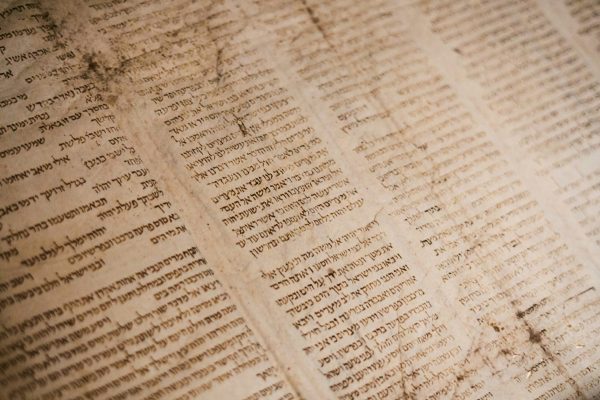When I was little, my nose was always in a book. I read and read and read. And not only did I read – I would re-read. My most beloved books would disintegrate in my hands because I had read them so many times. I adored falling back into worlds that felt as familiar and cozy as my own home, and meeting up again with characters who were my oldest friends and teachers.
In high school, the Covenant Renewal (Confirmation) ritual at my synagogue was my first formal entry into Jewish life. My non-Jewish dad remarked after the ceremony, “kiddo, it is so appropriate for you to be a member of a religion that worships a book.” We don’t worship the Torah, but we do re-read it, over and over every year. Even though I came a little late to Jewish practice, our relationship to our holiest book is one that felt very familiar to me.
I had the opportunity recently to see Hadestown on Broadway. This retelling of the Greek myths of Orpheus and Eurydice, and Hades and Persephone, is a gorgeous meditation on love and apocalypse. At the end of the play, after the central love story has met its tragic ending, everything resets, and the tale begins again. The cast sings, “It is a sad story, but we tell it anyway/it is a sad song, but we sing it again…” Wiser, more experienced, knowing clearly the pain of the journey that lies ahead, knowing even how things end, the characters dive back into the story, open to every moment as if it was the first time.
The Torah is full of the entire tapestry of human experience – sad and dark chapters nestle next to transcendent moments of poetry and joy. Just as the stories of our own lives contain sadness and joy, the quotidian and the transcendent, each one laid next to each other with seeming randomness. The magic happens when we meet Torah, again, for the first time, in the particularity of who we are right now and where we are in our story. Something that is profound one year might seem trite the next, or a character I found alien as a child becomes recognizable and relatable as I grow up.
In re-encountering Torah every year, we get the joy of meeting up with beloved places and dear old friends. And we get the joy of discovering who and where we are now, in this moment and no other. What is distinct about the present gets thrown into sharp relief by how the familiar is changed from the last time.
Practice: find a text you know well – a poem, a beloved childhood story, an old song, or maybe even a passage from the Bible. Re-read it. Pay attention to your experience. What feels familiar? What had you forgotten? What changes in you are illuminated by what feel like changes in the text?
My name is Rabbi Megan Doherty, and this has been Tipat Torah.
 Rabbi Megan Doherty, she/her, (RRC ’07) is the Senior Educator in Community Engagement at HIAS. Previously, she spent 10 years as a Hillel rabbi at Oberlin and at Yale. She has completed fellowships and training with the Shalom Hartman Institute, the Mandel Foundation, the Institute for Jewish Spirituality, Resetting the Table, and the Yeworkwha Belachew Center for Dialogue at Oberlin.
Rabbi Megan Doherty, she/her, (RRC ’07) is the Senior Educator in Community Engagement at HIAS. Previously, she spent 10 years as a Hillel rabbi at Oberlin and at Yale. She has completed fellowships and training with the Shalom Hartman Institute, the Mandel Foundation, the Institute for Jewish Spirituality, Resetting the Table, and the Yeworkwha Belachew Center for Dialogue at Oberlin.











